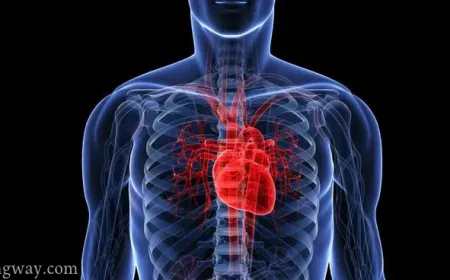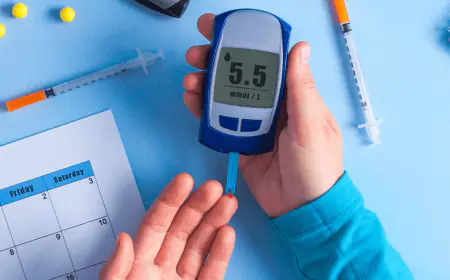Silent Epidemic Threatening Our Daily Health
"Micronutrient deficiency affects millions. Discover causes, symptoms, and prevention strategies for a healthier lifestyle."

Are We Eating Healthy Enough?
Despite the abundance of food in today’s world, millions of people suffer from micronutrient deficiencies without even realizing it. Known as the "silent epidemic," this deficiency doesn’t always show immediate symptoms but gradually weakens the body and affects its vital functions. In this article, we’ll explore what micronutrients are, their importance, causes of deficiencies, and practical ways to prevent them.
What Are Micronutrients and Why Are They Important?
Micronutrients are essential vitamins and minerals required by the body in small amounts, but they play a significant role in maintaining health. These nutrients are crucial for functions such as boosting immunity, energy production, and maintaining a healthy nervous system. Key micronutrients include:
Iron: Essential for oxygen transport in the blood.
Zinc: Supports immunity and cell growth.
Iodine: Necessary for thyroid function.
Vitamin D: Enhances bone health and immunity.
Vitamin B12: Vital for the nervous system and red blood cell production.
Despite their importance, many individuals suffer from micronutrient deficiencies regardless of their age or location.
What Causes Micronutrient Deficiency?
Micronutrient deficiency can occur for several reasons, including:
1. Poor Nutrition: Relying on processed foods and fast food that lack essential nutrients.
2. Chronic Illnesses: Conditions like Crohn’s disease or irritable bowel syndrome (IBS) that affect nutrient absorption.
3. Food Insecurity: Lack of access to diverse and nutritious foods.
4. Physiological Changes: Pregnancy and breastfeeding significantly increase the body’s need for micronutrients.
5. Unhealthy Eating Habits: Skipping vegetables and fruits in daily meals.
Symptoms and Health Implications of Micronutrient Deficiency
Micronutrient deficiencies don’t always have clear symptoms initially but can lead to serious health issues over time. Common symptoms include:
Fatigue and Poor Concentration: Due to iron and vitamin B12 deficiencies.
Hair Loss and Brittle Nails: Linked to zinc deficiency.
Weakened Immunity and Increased Infections: Caused by vitamin D and zinc deficiencies.
Thyroid Disorders: Resulting from iodine deficiency.
Growth Problems in Children: Due to a lack of essential vitamins and minerals.
If left untreated, these deficiencies can lead to chronic illnesses and significantly impact quality of life.
How to Prevent Micronutrient Deficiency
Preventing micronutrient deficiency starts with adopting a balanced and diverse diet. Here are practical tips:
1. Consume Natural and Nutritious Foods:
Include fresh vegetables and fruits in your daily meals.
Make whole grains and legumes a staple energy source.
Opt for lean meats and fish as protein sources.
2. Diversify Your Food Choices:
Include foods rich in vitamins like eggs and dairy for vitamin B12 and D.
Add nuts and seeds to your meals for zinc and iron.
3. Use Dietary Supplements:
If lab tests confirm a deficiency, take supplements under medical supervision.
4. Avoid Processed Foods:
Limit your consumption of high-calorie, nutrient-poor foods like sodas and sweets.
5. Support Nutrition Awareness Programs:
Community programs can help provide fortified foods rich in iron and zinc in underprivileged areas.
Who Is Most at Risk for Micronutrient Deficiency?
1. Children: They require a balanced diet to support their rapid growth.
2. Pregnant Women: Their needs for iron and iodine increase significantly to support fetal health.
3. Elderly Individuals: The body’s ability to absorb nutrients declines with age.
4. Vegetarians: Without proper planning, they may lack vitamin B12 and iron.
Nutrition Is the Key to Health
Micronutrient deficiency may seem like a minor issue initially, but it has long-term consequences for overall health. The solution lies in simple steps, such as adding more fresh foods to your daily meals and consulting a nutritionist when needed. Remember, a healthy diet is the most important investment in your health and future.
"Start with a simple blood test to determine your nutritional needs and take steps to improve your health today."
Source
1. World Health Organization (WHO). Healthy Diet.
2. Harvard T.H. Chan School of Public Health. The Nutrition Source.
3. Mayo Clinic. Nutrition and Healthy Eating.
What's Your Reaction?




















































